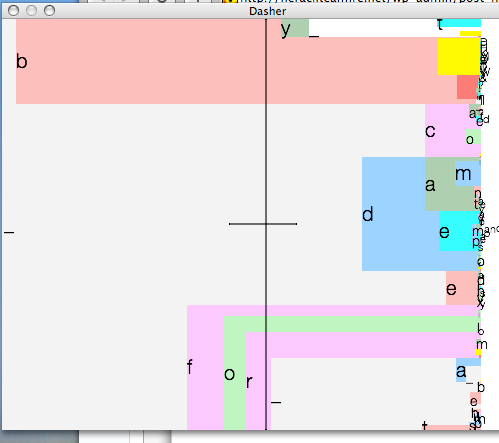Simon Jenkins has an article in the Guardian that is so wrong-headed that it’s a little hard to grapple with. The first couple of paras give a good idea of the flavour:
I rise each morning, shave with soap and razor, don clothes of cotton and wool, read a paper, drink a coffee heated by gas or electricity and go to work with the aid of petrol and an internal combustion engine. At a centrally heated office I type on a Qwerty keyboard; I might later visit a pub or theatre. Most people I know do likewise.
Not one of these activities has altered qualitatively over the past century, while in the previous hundred years they altered beyond recognition. We do not live in the age of technological revolution. We live in the age of technological stasis, but do not realise it. We watch the future and have stopped watching the present.
I’ll leave it as an exercise for the reader to pick apart all the ways in which his examples are tendentious, highly selective or downright false and skip quickly on to pick a bit out.
No, the computer is not a stunning technological advance, just an extension of electronic communication as known for over a century. No, the internet has not transformed most people’s lives, just helped them do faster what they did before.
I can’t help feeling that he’s stretching the word ‘just’ beyond its reasonable limits.
As well as using it as a more sophisticated replacement for the mechanical typewriter, I regularly use my computer for design, photo-editing and as a print-shop. It’s a jukebox and photo display unit, and I can watch DVDs on it. I have a tuner plugged into it, so it acts as a TV, radio and video recorder as well. If I was so inclined, I could also use it to write and record music, edit sound and video, create animation, do 3D modelling, and process complicated mathematical functions. I can play games on it: an entirely new pastime and a new creative medium. I suppose you might argue that many of these things are possible without computers — I could have a print shop, darkroom, recording equipment and film editing suite in my house, after all — but I think that having all of them in one box qualifies the computer as a ‘stunning technological advance’.
And if I attach the computer to the internet, there’s a whole load of extra things it can do that I haven’t even mentioned yet. It becomes an alternative to mail, a news service, a library, an encyclopedia and a picture library. I can download music and video. If I had a camera attached to it it would be a videophone. There’s this site, which is read every day from places around the world. The numbers involved are fairly modest — I’m no Boing Boing — but even so, it would hardly be practical to distribute the same content though the post.
As for “the internet has not transformed most people’s lives, just helped them do faster what they did before”; even if that were true, it’s like saying that aeroplanes are no different to ocean liners. They both move you from one place to another, after all. Sometimes, ‘faster’ is the whole point.
I’ve seen versions of this argument in the media a few times and I just find it baffling. Jenkins has thought about this enough to have a bee in his bonnet about it; how did come to the conclusion that this is “the age of technological stasis”? I suspect a lot of it comes down to the Clarkson effect: there seem to be lots of people who are fascinated by machinery and engineering as long as it has gears and pistons but completely turn off when faced with a piece of electronics. There’s a weird cultural disconnect between the nostalgic image of the ‘boffin’ — otherwordly but admirable model of technical ingenuity — and the ‘geek’ — pasty, socially inept, caffeine-fuelled toiler in the code mines. And somewhere along the line, people seem to have lost any sense of how incredibly sophisticated these machines are. The very sophistication of them means that most people use them with very little idea of how they work: you can’t open up a computer and find out how it works by taking it apart and putting it back together.
And that’s only going to get worse. I don’t aspire to übergeek status myself; in fact I’m hardly even an untergeek despite a few geekly leanings. But at least having grown up with the first generation of home computers, I have some sense of what a very simple computer is like and how you get from there to here. If your first computer has Vista on it, and you play your first games on an XBox 360, they might as well just be magic boxes for all the insight you’re going to get about how they work.

